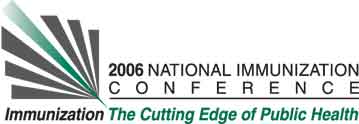Dawn L. Martin, Lisa LaForest, Tu Quan, and Joni Geppert. Department of Pediatrics, Hennepin County Medical Center, 701 Park Ave South, Minneapolis, MN, USA
Learning Objectives for this Presentation:
By the end of the presentation participants will be able to:
1) Become familiar with immunization cultural beliefs/attitudes of Hispanic, Somali and African American families.
2) Apply study results to culturally appropriate educational methods/outreach.
Background:
Aggressive immunization initiatives have resulted in significant improvements in immunization coverage (80.9% coverage for 19-35 month olds, 4:3:1:3:3, 2005). Many of these improvements can be attributed to reducing health system/provider barriers to immunization delivery. Family related factors also influence immunization coverage; however, the independent effects of specific cultural beliefs/ attitudes toward immunizations are difficult to isolate and have not been well studied. Understanding these factors is important given the increasingly diverse pediatric population.
Setting:
Ambulatory pediatric clinic, Hennepin County Medical Center (HCMC), Minneapolis, Minnesota
Population:
Hispanic, Somali and African American families, with 6-36 month olds, seeking medical care at HCMC pediatric clinic
Project Description:
Stratified sample of 300 families were interviewed (99 Somali, 137 Hispanic, 64 African American) by trained, native speakers regarding demographics, immunization knowledge, beliefs, and practices from 11/2003 to 11/2005.
Results/Lessons Learned:
Families viewed immunizations positively, 99% reported immunizations are an accepted/important part of health in their culture. Absence of fear was notable, 91.5% believe vaccines never do more harm than good; no neurodevelopmental concerns were noted. Knowledge gaps were identified; fever (23.5%) and cold (53.0%) were reported as contraindications. Vaccine protection against colds (54.4%), diarrhea (24.4%), and HIV (23.1%) were reported; 59.5% believed immunizations cured Hepatitis B, meningitis, measles or polio.
African Americans (78.4%) are less likely to believe if their child is not immunized that s/he will get the disease (p=0.021) compared with Hispanics (91.2%) and Somali (93.1%). Hispanics (82.1%) are most likely to believe immunizations will always prevent disease (p=0.001) compared with African Americans (5.5%) and Somali (1.4%).
Improved knowledge and understanding provides the basis for more culturally appropriate outreach programs/patient education.
See more of Exploring the Role Culture Plays in Promoting Immunization
See more of The 40th National Immunization Conference (NIC)

